Related Research Articles

A community college is a type of educational institution. The term can have different meanings in different countries: many community colleges have an "open enrollment" for students who have graduated from high school. The term usually refers to a higher educational institution that provides workforce education and college transfer academic programs. Some institutions maintain athletic teams and dormitories similar to their university counterparts.

De La Salle–College of Saint Benilde, also known as Benilde and abbreviated DLS–CSB or simply CSB, is a private, Catholic research college established by De La Salle Brothers located in Malate district of Manila, Philippines. It operates four campuses all of which are located within the vicinity of Malate. The college is a member institution of De La Salle Philippines (DLSP), a network of 16 Catholic Lasallian institutions. DLS–CSB is also a member of a 350-year-old international network of over 1,100 Lasallian educational institutions globally established by the De La Salle Christian Brothers in 80 countries.

The University of San Carlos is a private, Catholic, research, coeducational basic and higher education institution administered by the Philippine Southern Province of the Society of the Divine Word missionaries in Cebu City, Philippines since 1935. It offers basic education and higher education. Founded originally in 1595 as Colegio de San Ildefonso, it later became the Colegio-Seminario de San Carlos in 1783 and finally obtained university charter in 1948.

The Central Philippine University is a private research university in Iloilo City, Philippines. Established in 1905 through a benevolent grant of the American industrialist and philanthropist, John D. Rockefeller, as the Jaro Industrial School and Bible School under the auspices of the American Baptist Foreign Mission Society, it is the first Baptist founded and second American and Protestant university in the Philippines and in Asia. In 1913, women were first admitted to the school and it was later converted into a junior college in 1923 as Central Philippine School and as Central Philippine College in 1924. In 1953, the college attained university status. It is affiliated with the Convention of Philippine Baptist Churches but independent and non-sectarian.
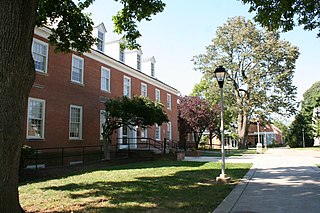
The Maryland School for the Deaf (MSD) provides free public education to deaf and hard-of-hearing Maryland residents of aged zero to 21 years. Maryland School for the Deaf has two campuses: one in Frederick, Maryland and one in Columbia, Maryland.
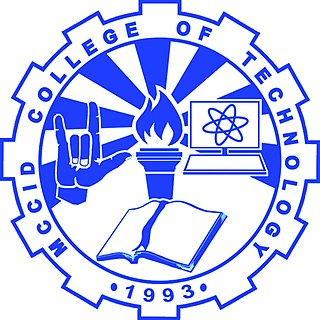
Manila Christian Computer Institute for the Deaf (MCCID) is a non-sectarian, post-secondary, Christian foundation school for the deaf in the Philippines authorized by the Technical Education and Skills Development Authority (TESDA) to offer non-degree computer and other technical training programs.

Don Bosco Technical College, also referred to by its acronym DBTC or Don Bosco Mandaluyong, is a private Catholic basic and higher education institution run by the Salesians of the Society of Saint John Bosco in Mandaluyong, Metro Manila, Philippines. Established in 1953 by the Salesians, it is the first Don Bosco Educational Center in Metro Manila. Don Bosco Mandaluyong offers co-educational primary (elementary) and secondary education, co-educational senior high school and college, night school, and vocational training for out-of-school youth.
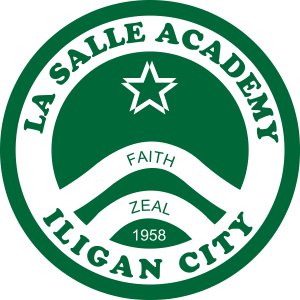
La Salle Academy is a private Catholic La Sallian basic education institution run by the Philippine District of the Institute of the Brothers of the Christian Schools in Iligan City, Lanao del Norte, Philippines. It was founded in 1958. It is the first of the third generation of La Salle schools founded by the De La Salle Brothers in the country, namely: La Salle Green Hills in Mandaluyong (1959), Saint Joseph School-La Salle in Bacolod (1960), and De La Salle Lipa in Lipa City (1962).
Education in the Philippines is provided by public and private schools, colleges, universities, and technical and vocational institutions in the country. Funding for public education comes from the national government. For the academic year 2017–2018, about 83% of K–12 students attended public schools and about 17% either attended private schools or were home-schooled.

Holy Name University is a private, Catholic, research, co-educational basic and higher education institution run by the Philippine Southern Province of the Society of the Divine Word in Tagbilaran City, Bohol, Philippines. It was founded by Fr. Alphonse G. Lesage, SVD a Divine Word Missionary in 1947. It offers programs in elementary, secondary and tertiary levels. Its tertiary offerings include courses in Arts and Sciences (CAS), Education(COED), Nursing, Medical Technology, Radiologic Technology (CHS),Commerce and Accountancy (CBA), Computer Science, Engineering, Information Technology (COECS) and Law (COL) Aside from instruction, HNU engages in research and community extension.
The PMI Colleges Bohol is a private, non-sectarian, co-educational institution of higher learning in Tagbilaran City, Bohol, Philippines and is part of the PMI Colleges system. It offers marine courses such as Marine Transportation, Marine Engineering and Customs Administration. With its main building at Carlos P. Garcia Avenue, it has an extension campus at Tomas Cloma Avenue, Barangay Taloto, Tagbilaran City.

The Technical Education and Skills Development Authority serves as the Philippines' Technical Vocational Education and Training (TVET) authority. As a government agency, TESDA is tasked to both manage and supervise the Philippines' Technical Education and Skills Development (TESD). Its goals are to develop the Filipino workforce with "world-class competence and positive work values" and to provide quality technical-educational and skills development through its direction, policies, and programs.
CAP College Foundation, Inc. is a private, non-sectarian distance learning college in the Philippines.

Baguio Central University is a private, non-sectarian, basic and higher education institution in Baguio City, Benguet, Philippines. It offers education to high school and preschool students. It is also known for its vocational courses.
Filipino Sign Language (FSL) or Philippine Sign Language, is a sign language originating in the Philippines. Like other sign languages, FSL is a unique language with its own grammar, syntax and morphology; it is neither based on nor resembles Filipino or English. Some researchers consider the indigenous signs of FSL to be at risk of being lost due to the increasing influence of ASL.
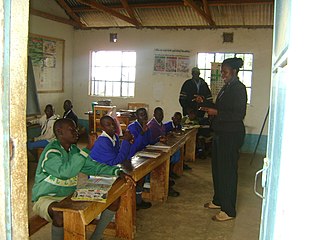
Deaf education is the education of students with any degree of hearing loss or deafness. This may involve, but does not always, individually-planned, systematically-monitored teaching methods, adaptive materials, accessible settings, and other interventions designed to help students achieve a higher level of self-sufficiency and success in the school and community than they would achieve with a typical classroom education. There are different language modalities used in educational setting where students get varied communication methods. A number of countries focus on training teachers to teach deaf students with a variety of approaches and have organizations to aid deaf students.

PMI Colleges, formerly known as Philippine Maritime Institute, is a private, non-sectarian, co-educational higher education, Maritime institution established on September 18, 1948 in Santa Cruz, Manila, Philippines where its main campus is located.
The International Deaf Education Association (IDEA) is an organization focused on educating the deaf in Bohol, Philippines initiated by the United States Peace Corps, under the leadership of Dennis Drake. The organization is a non-profit establishment that provides education to the impoverished and neglected deaf and blind children in the Philippines. The institution is able to hold special education classes on the islands of Bohol and Leyte through sponsorship program financially supported by American and European participants. Established in 1985, IDEA has the mission to give assistance to the deaf community in the Philippines in order for them to achieve self-reliance through the provision of “academic, vocational, physical, spiritual, and economic opportunities”. As a holistic ministry, IDEA aims to develop a society wherein deaf people can benefit from “social and economic equality, exchanging isolation for community, and servitude for self-reliance”.
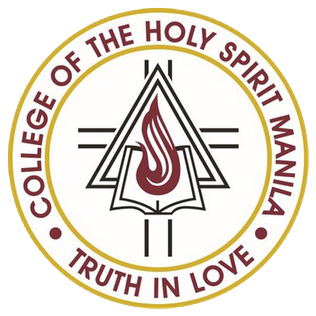
The College of the Holy Spirit Manila, or simply CHSM, was a private, Catholic education institution founded and ran by the Missionary Sisters Servants of the Holy Spirit in Manila, Philippines. Founded in 1913, College of the Holy Spirit Manila was established originally as Holy Ghost College through the invitation of then Manila Archbishop Jeremias Harty. Located originally at Legarda Street, the present campus is now located in the historic Mendiola Street, inside the Malacañang Palace Complex. It is one of the schools which comprises the Mendiola Consortium (MC) for academic cooperation along with Centro Escolar University Manila, La Consolacion College Manila, San Beda College Manila, and St. Jude Catholic School.

The Philippines is an archipelago comprising over 7,000 islands in southeast Asia. Its capital city is Manila, on the island of Luzon. The Philippines has heavy Spanish and American influence, since Spain and the United States conquered the Philippines. They gained full independence from the United States on July 4, 1946. Over 112,000,000 populate the island country, and around 121,000 Filipinos are Deaf.
References
- 1 2 "Deaf Community of Bohol | Bohol Deaf Academy - High School for the Deaf". Archived from the original on 2018-02-18. Retrieved 2018-02-18.
- ↑ "LFP supports deaf children in Bohol » Liliane Foundation Philippines". Archived from the original on 2011-05-06. Retrieved 2009-09-24.
- ↑ Olson, J. R. (December 1989). "Project IDEA: International Deaf Education Association". Am Ann Deaf. 134 (5): 338–40. doi:10.1353/aad.2012.0527. PMID 2618924. S2CID 35114448.
- ↑ ""First Class" Hotel proudly run by Deaf People". 22 August 2008.